How the Common Core Must Ensure Equity by Fully Preparing Every Student for Postsecondary Success
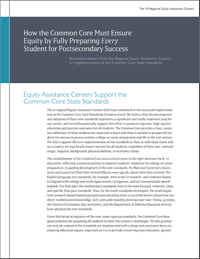

Infographic: Six Generations of Civil Rights and Educational Equity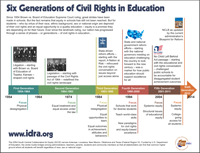

Since 1954 Brown vs. Board of Education Supreme Court ruling, great strides have been made in schools. But the fact remains that equity in schools has still not been reached. But for students – who by virtue of their race, ethnic background, sex or national origin are deprived of their civil rights and an equal opportunity to a quality education – equity is a promise they are depending on for their future. Ever since the landmark ruling, our nation has progressed through a series of phases – or generations – of civil rights in education…
Assuring Civil Rights Protection with State ESEA Flexibility Waivers
The discussion about the big initiatives the U.S. Department of Education and the administration have undertaken does not end with the Common Core State Standards (Scott, 2013). It must extend to the ESEA state flexibility waivers. Thirty-four states and the
District of Columbia
are approved for ESEA flexibility. Other states have applied and are awaiting review and approval. This article by Bradley Scott, Ph.D., lays out some of the civil rights concerns that may arise around the plans for flexibility that have been submitted and approved by the U.S. Department of Education.
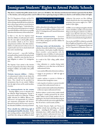

Immigrant Students’ Rights to Attend Public Schools
Many educators are not aware that the education of undocumented students is guaranteed by the Plyler vs. Doe decision or that certain procedures must be followed when registering immigrant children in school. The U.S. Department of Justice and the U.S. Department of Education recently reminded schools that activities that deny or discourage students to attend school are unlawful. See IDRA’s School Opening Alert for details. Available in pdf in English and Spanish.


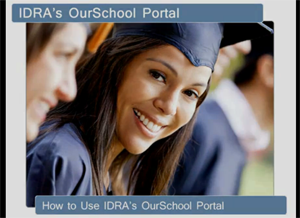

The IDRA OurSchool portal is designed to help you – educators and community members – find out how well your high school campus is preparing and graduating students, what factors may be weakening school holding power, and what you can do together to address them. [02:16 min]


White Paper: The Cost of Inequity in Education
This literature review looks at the policy-related research regarding education and the cost of inequity. Research has established that the benefits of providing additional schooling for a greater percentage of students far outweigh the additional expenses that are associated with keeping more students enrolled all the way to graduation from high school and college. This white paper provides a brief background and then looks at the following topics: non-separate, but still unequal; expanding expectations for all schools and all students; access to higher education; economic payoff of high school and college diplomas; the additional costs associated with graduating more students from high school and college; recognition of the non-education based cost of education inequity; and other cost savings correlated with increased levels of educational attainment. It closes with a summary, conclusions and related policy implications.
IDRA Director of Policy, Dr. Albert Cortez, Testifies in School Finance Case
Dr. Albert Cortez, IDRA director of policy, presented expert testimony this week based on IDRA’s analysis of school funding equity across the state. “We found that the
Texas system of school finance is still inequitable, inadequate, arbitrary and inefficient,” summarized Dr. Cortez. His testimony addressed funding disparities, related tax yield disparities, underfunding for English learners and low-income students, impact on high school attrition, and the effects of the recent special program cuts. “In
Texas, the quality of schooling still seems to be markedly affected by the neighborhood in which you happen to reside.”
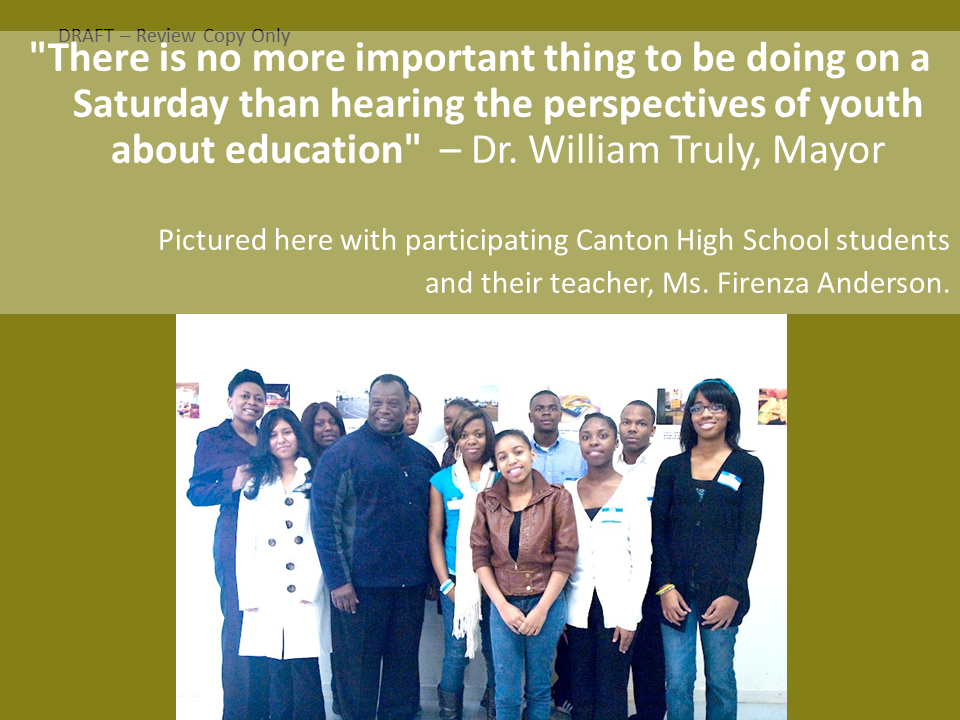

With the civil rights promises of Mendez vs. Westminster and Brown vs. Board of Education as a backdrop, IDRA and Critical Exposure worked with a group of Canton high school students as they took up 35 millimeter cameras to reflect on barriers and opportunities for building pathways to high school graduation and college in Canton, Mississippi, See their perspectives: Movie format or PowerPoint format.
Anti-Bullying Program Launched by Tulsa Public Schools
Tulsa Public Schools have launched a new online anti-bullying program that looks to encourage students, teachers and staff to report bullying. (Story by educationnews.org)




![]()
![]()
![]()
![]()















